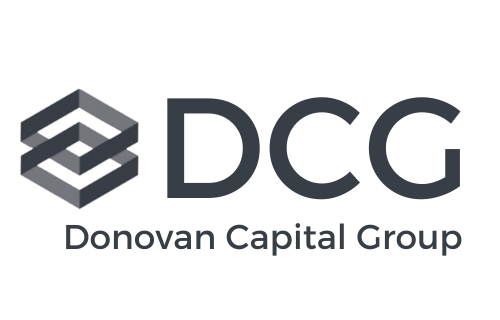To Counter China, We Need to Light Our Dry Powder
Incentivizing private capital to strengthen our industrial base is necessary for our national security.
By: Claudio Ochoa
Over the past four decades, China has made staggering advances to become a near-peer competitor to the U.S. Recently, the focus has been on China assuming the leadership role in critical technologies of the future, such as 5G, quantum computing, biotechnology, and AI. But this misses the complete picture.
Although not as sexy, China’s real advantage comes in its ability to make stuff, a lot of stuff. In terms of output, China now produces $4 trillion dollars in goods or 28% of the world’s total, compared to the U.S. at $2 trillion.
Owning the entire chain, from development to manufacturing, allows companies to consolidate raw materials, lower costs, protect IP, ramp up production in emergencies (N-95 masks, anyone?), and set standards. After all, what good is being the first to develop a technology, if you have to turn to your competitor to make it?
Case in point: U.S. companies can design drones competitive to DJI’s, the market leader and a Chinese company. The problem? The same drone that costs DJI $300 to make, costs a U.S. company $3,000 because DJI/China controls its supply chain.
China’s competitiveness is in part due to its ability to fuse its commercial sector - both the innovation and manufacturing horsepower, along with the necessary capital for each - behind the interest of the state.
While we can’t compel this civil-military fusion like China, the U.S. Government has taken steps to build commercial relationships and spur civilian innovation. The most talked about manifestation of this effort from the Department of Defense ("DOD") and the Intelligence Community ("IC") is the formation of organizations like In-Q-Tel, the Defense Innovation Unit, and AFWERX. However, these groups alone won’t move the needle for two reasons.
First, their focus is almost exclusively on the tip of the iceberg: developing and applying tech, not the manufacturing, industrial, and supply tail necessary to support production.
Second, and perhaps more importantly, they lack sufficient resources relative to foreign counterparts. Collectively, these entities directly deploy less than $500 million through investments and contract awards, paling in comparison to the at least $73 billion China deployed through similar efforts.
In order to supercharge the entire national security innovation and industrial base, the government’s focus and resources would be better spent on igniting the approximately $1.5 trillion of uninvested cash, or “dry powder”, U.S. private equity investors are currently sitting on. And then aligning that capital behind critical priorities: domestic capability & capacity, relocating foreign supply chains, addressing shortfalls, and encouraging contracting with the government.
Initiatives like DOD’s Trusted Capital Marketplace (“TCM”, of which Donovan Capital is a member) and the Small Business Innovation Research (“SBIR”) program seek to encourage that investment - TCM attempts to put trusted American businesses in the same room as trusted American investors, while SBIR provides non-traditional government contractors with matching funds based on private capital raised – but neither address what really matters to unlock investment: an investor’s risk/reward calculation.
To encourage private investment in companies critical to U.S. national security, the government should incentivize that investment in much the same way it does through the Small Business Investment Company (“SBIC”) and Opportunity Zones programs.
An SBIC is a private investment fund that raises money from both private investors and the SBA. So long as the SBIC agrees to invest in qualified small businesses, which are generally riskier, the SBA will lend the fund $1 for every $2 raised from private investors. The program is potent for two reasons. First, it relies on the experts in the private sector to identify the best opportunities. Second, due to the leverage provided by the SBA, SBICs are able to raise more capital from private investors because the SBA does not participate in the profits – hence, amplifying the returns for the private investors.
The Opportunity Zone incentive, on the other hand, was created by Congress in the Tax Cuts and Jobs Act of 2017 to encourage long-term investments in low-income urban and rural communities. It does this by providing tax incentives for investors to re-invest unrealized capital gains into dedicated Opportunity Funds, which are private funds that agree to invest at least 90% of their capital in qualifying areas in Opportunity Zones. The ultimate goal is to unlock the trillions of dollars of unrealized capital gains held by U.S. investors.
Congress should implement a similar program to support industries and companies the DOD or IC deem critical to U.S. national security. Each allows private equity managers to increase our potential return, which in turn allow us to attract, and ultimately deploy, more capital. Not only would such a program truly make our nation more secure, it would also drive the economy by keeping American dollars in American businesses (at least 150,000 companies count the DOD as a direct or indirect customer).
The answer to China is not more government. Rather, it is what has always driven our country’s growth and innovation: unleashing the unmatched power of private market capitalism.
Claudio Ochoa is the Managing Partner of Donovan Capital Group, LLC (“DCG”). DCG is an investment firm that makes non-control structured equity and mezzanine debt investments in profitable, lower middle-market companies that work with (or desire to work with) the U.S. Department of Defense or Intelligence Community. DCG is a designated Trusted Capital Partner of the Department of Defense.
For more information, please visit www.Donovan-Capital.com or email: info@donovan-capital.com.

